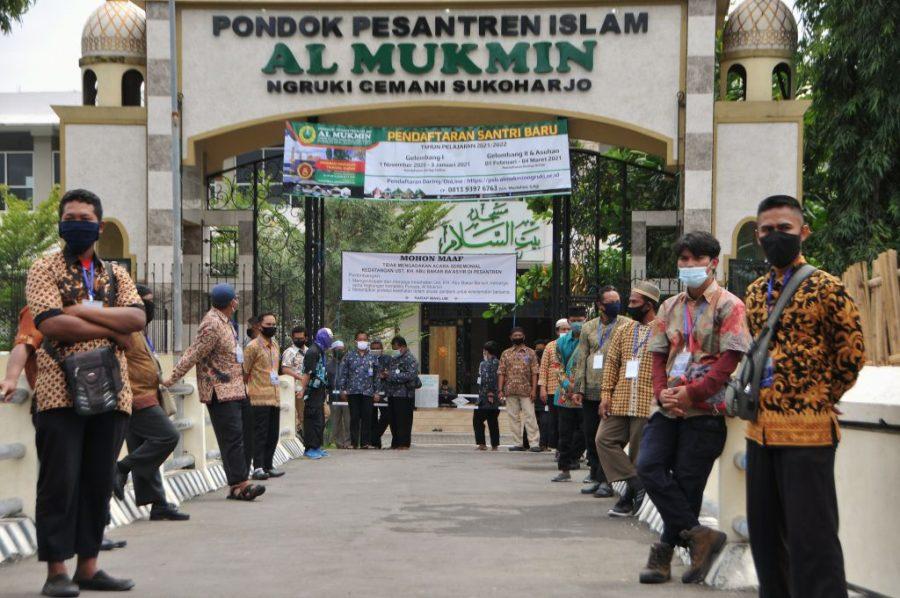Survey reveals what Indonesians really think of Australia
Posted By Hillary Mansour on March 22, 2021 @ 11:00

The 2021 ‘State of Southeast Asia’ survey report [1] by Singapore-based think tank ISEAS – Yusof Ishak Institute reveals some hard realities about Indonesians’ attitudes towards Australia.
The survey exposes the limited impact of Australia’s soft-power efforts in Indonesia and signals the need for a strategic reassessment of our bilateral relationship.
The report details ASEAN member states’ outlook on regional influence and leadership, ASEAN’s role, and particular issues of concern, this year focusing on Covid-19 pandemic and the strategic rivalry between the United States and China. The limited sample of 1,032 professionals (of whom 12.5% were Indonesian) working across research, business and government gives a ‘barometer of general attitudes’, showing in broad strokes the key underlying attitudes across ASEAN, rather than providing a definitive representation.
Despite these limitations, the survey offers some insight into how Australia’s self-perception as a regional neighbour compares with our neighbours’ perceptions of us. On some measures, Australia tracks well, particularly in higher education. Some 19.4% of Indonesian respondents ranked Australia as their ‘first choice if you (or your child) were offered a scholarship to a university’, behind only the US (27.1%) and ahead of the UK (15.4) and Japan (8.5). Significantly, Australia was selected by a much larger proportion of Indonesian respondents than respondents from other ASEAN nations.
Otherwise, and despite efforts Australia has made to strengthen its reputation, the Indonesian responses suggest there’s more work to do.
On trade, for example, contrary to Australia’s 2017 foreign policy white paper [2] aspirations, it wasn’t recognised for ‘leadership, creativity and perseverance’ in advancing world trade outcomes. When asked to identify the country or group of countries in which they had ‘the strongest confidence’ in providing ‘leadership in championing the global free trade agenda’, no Indonesian respondents selected Australia. This is despite consistent advocacy for free trade in regional institutions such as APEC, as well as a bilateral trade, investment and development partnership agreement [3] with Indonesia.
By comparison, China (whose approach to trade has been demonstrated by its recent treatment of Australia), the US (which has no trade agreement with Indonesia, and which undercut the World Trade Organization under President Donald Trump) and the EU (whose common agricultural policy has long undermined [4] Indonesian trade interests) were selected by 20.9%, 15.5% and 29.5% of Indonesian respondents, respectively. Even New Zealand received 2.3% support.
And while Australia considers itself a strong advocate of a rules-based order, that’s an impression Indonesia doesn’t seem to share. On the question of who has shown ‘leadership in maintaining the rules-based order and upholding international law’, 34.9% of Indonesian respondents selected the EU, while only 2.3% selected Australia—the same percentage earned by New Zealand and the UK.
Australia was backed by 7.8% of Indonesian respondents as ‘the preferred and trusted strategic partner for ASEAN in its efforts to hedge against US–China rivalry’. That is perhaps an unrealistic assessment of Australia’s practical weight. For its part, the distant EU would also be a limited strategic hedge, but it was chosen by 55.8% of Indonesian respondents. To the extent that this question evaluated preference and trust, it again points to a deficit for Australia.
Disconcertingly, Australia’s aid contribution doesn’t seem to have registered with Indonesians. When asked which nation provided the most help during the pandemic, the Indonesian respondents selected the US (7%), Japan (9.3%), the EU (20.2%) and China (45%). Australia ranked with the Republic of Korea at 6.2%. These selections do not correlate with actual aid contributions. Australia’s $1.5 billion loan and millions of dollars’ worth of donations [5] to Indonesia dwarf the US$12 million [6] provided by the United States, South Korea’s US$5 million and the EU’s Team Europe [7] collective €200 million in grants and loans.
Simple misperceptions may have contributed to these results, and such misunderstandings are common [8]. Past disputes [9] might explain the responses on trade. Bilateral clashes over people-smuggling and asylum-seeker policies likely tarnished Indonesian perceptions [10] about Australia’s adherence to international law and conventions. Former prime minister Tony Abbott’s suggestion [11] that aid might translate into political leverage [12] may have undermined the perceived sincerity of Australia’s subsequent aid contributions.
But whatever the cause, the result is a fissure between relationship-building efforts and the strengthening of Australia’s standing in Indonesia. The bilateral relationship is vulnerable to shock, and an array of historical difficulties keep resentment in Indonesia dormant but close to the surface. This survey indicates that the relationship is not strong enough for Indonesians to give Australia the benefit of the doubt.
Australians should be asking critical and introspective questions on why so many of the Indonesians most interested in international affairs seem to perceive us this way, and what we should do about it.
A starting point is to note the implications of studies such as this. The results indicate a critically limited reservoir of sympathy for Australian soft power in Indonesia. If we’re serious about increasing it—ahead of more inevitable challenges in our bilateral relationship—we need to address the issues that this survey has exposed.
Article printed from The Strategist: https://aspistrategist.ru
URL to article: /survey-reveals-what-indonesians-really-think-of-australia/
URLs in this post:
[1] 2021 ‘State of Southeast Asia’ survey report: https://www.iseas.edu.sg/frontpage-featured/the-state-of-southeast-asia-2021-survey-report/
[2] 2017 foreign policy white paper: https://www.dfat.gov.au/publications/minisite/2017-foreign-policy-white-paper/fpwhitepaper/pdf/2017-foreign-policy-white-paper.pdf
[3] partnership agreement: https://www.dfat.gov.au/trade/agreements/in-force/iacepa/Pages/indonesia-australia-comprehensive-economic-partnership-agreement
[4] undermined: https://www.iatp.org/sites/default/files/Dumping_on_the_Poor_The_Common_Agricultural_Po.htm
[5] donations: https://www.dfat.gov.au/geo/indonesia/development-assistance/health-security-in-indonesia
[6] US$12 million: https://www.defense.gov/Explore/News/Article/Article/2330953/defense-department-aids-us-delivery-of-ventilators-to-indonesia/
[7] Team Europe: https://eeas.europa.eu/delegations/australia/80574/team-europe-response-coronavirus-indonesia_tg
[8] misunderstandings are common: https://aicperceptionsreport.com/Documents/AIC%20Perceptions%20Report.pdf
[9] disputes: https://theconversation.com/australia-owes-indonesia-an-apology-over-live-export-calamity-4802
[10] perceptions: https://law.unimelb.edu.au/__data/assets/pdf_file/0007/1546324/Too_Prosperous_Indonesian_Responses_to_Australian_Asylumseeker_policies1.pdf
[11] suggestion: https://globalriskinsights.com/2015/03/coinforabbott-why-indonesians-are-collecting-pocket-change-for-australias-prime-minister/
[12] political leverage: https://www.smh.com.au/politics/federal/coin-for-abbott-indonesians-angry-backlash-at-pms-bali-nine-diplomacy-20150221-13l5n2.html
Click here to print.